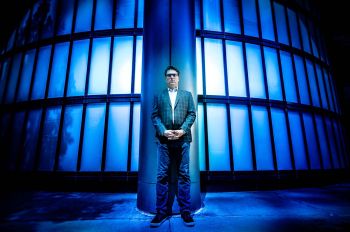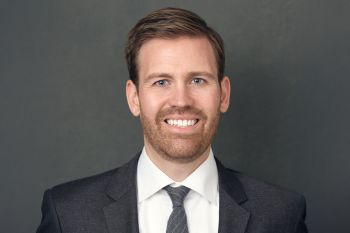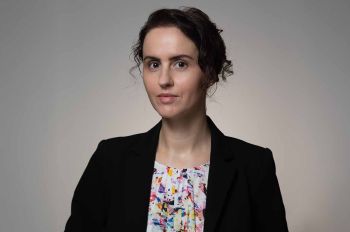IIT Chicago-Kent to host conference on "Judicial Takings: Property Rights and the Rule of Law"
U.S. Supreme Court Justice Antonin G. Scalia to deliver the keynote address on October 18
Antonin G. Scalia, associate justice of the Supreme Court of the United States, will deliver the keynote address at an October 18 conference titled "Judicial Takings: Property Rights and the Rule of Law," a half-day event hosted by IIT Chicago-Kent College of Law in partnership with the Jack Miller Center. Justice Scalia will speak to an invitation-only audience at 1:30 p.m. in the law school's Governor Richard B. Ogilvie Auditorium.
Justice Scalia's remarks will focus on the U.S. Supreme Court's 2010 decision in Stop the Beach Renourishment Inc. v. Florida Department of Environmental Protection. The decision has fostered debate within the legal community and among the general public over judicial takings.
"IIT Chicago-Kent is delighted to host Justice Scalia for this critical dialogue about fostering stable understandings of property rights," said IIT Chicago-Kent Dean Harold J. Krent. "I am grateful to the Jack Miller Center for its support and recognition of the importance of property rights under the rule of law."
The Stop the Beach Renourishment lawsuit was brought by a group of property owners to challenge a Florida law that allowed municipalities to petition the state to renourish eroded beaches. At issue was whether the state could restore eroded beaches in front of private homes and then designate the restored beach as public property. The Florida Supreme Court upheld the beach restoration law, and the property owners appealed on the grounds that the decision constituted a "judicial taking." In an 8-0 decision, the U.S. Supreme Court upheld the Florida Supreme Court ruling against the owners, but split as to whether a judicial takings claim was possible (Justice John Paul Stevens did not take part in the decision.). Justice Scalia wrote the Court's plurality opinion supporting recognition for a judicial takings theory.
Dean Krent noted that "Justice Scalia previously has voiced concern over the power exercised by all three branches of government to redefine property rights. At this conference, Justice Scalia and academics from around the country will examine the judiciary's role in ensuring that baseline definitions of property remain stable over time."
Following Justice Scalia's address, two panels of legal scholars will continue the judicial takings discussion. The first panel, "The Judiciary and Property Rights - Toward a New Doctrine?," moderated by IIT Chicago-Kent Professor Sarah Harding, will include Northwestern University School of Law Professor David Dana, Professor Mark Rosen of IIT Chicago-Kent, and University of Chicago Law School Professor Lior Strahilevitz. Panelists for the second discussion, "The State and Property Rights," moderated by IIT Chicago-Kent Professor Katharine Baker, will include University of Chicago Law School Professor Saul Levmore, Professor David Lieberman of UC Berkeley School of Law, and IIT Chicago-Kent Professor Stephanie Stern.
The conference will end with a moot court focused on the judicial takings issue. Third-year students and IIT Chicago-Kent Moot Court Honor Society members Richard Gutierrez and David Jorgensen will argue before Justice Scalia and Illinois Supreme Court Justice Anne M. Burke '83.
IIT Chicago-Kent College of Law is the law school of Illinois Institute of Technology, a private, Ph.D.-granting institution with programs in engineering, psychology, architecture, business, design and law. In 2011, IIT Chicago-Kent established the Institute on the Supreme Court of the United States (ISCOTUS), which combines the law school's core strengths: cutting-edge legal scholarship and technological innovation. ISCOTUS has three main components: The ISCOTUS Academic Center, the Oyez Project, and the Civic Education Project.
The ISCOTUS Academic Center promotes academic inquiry into the court and its jurisprudence for scholars and law students. Through the Oyez Project, the Institute leverages information technology to make materials related to the Supreme Court instantly accessible around the world. The Civic Education Project promotes public education about the Supreme Court and its role in our constitutional system of government.



